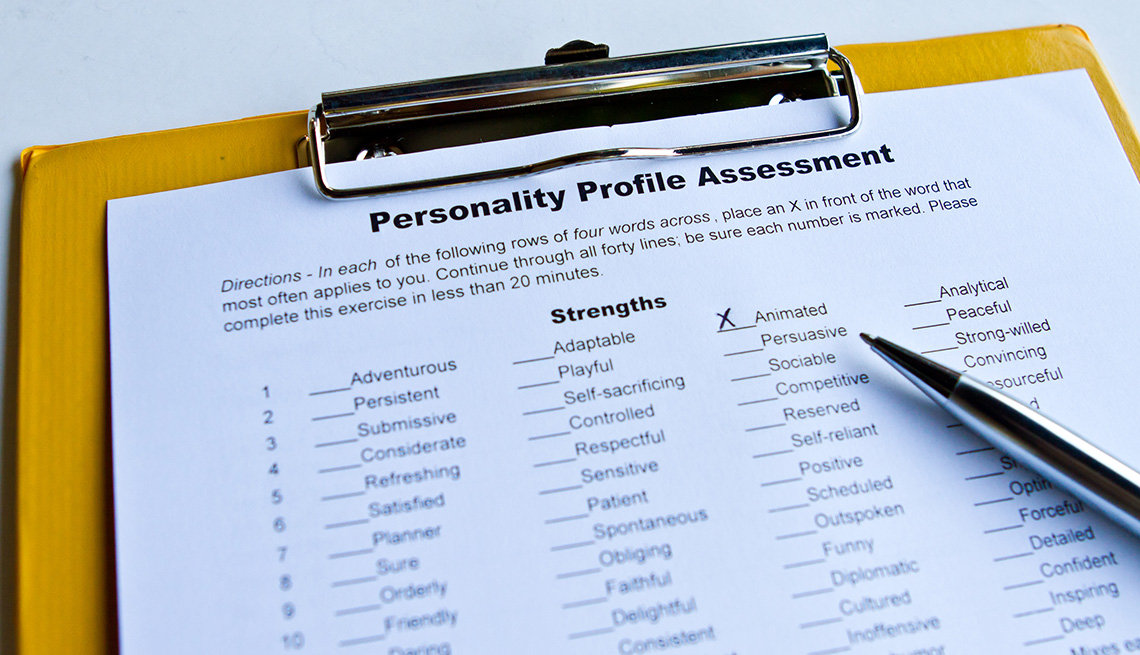AARP Hearing Center
Marilyn T. Smith, 64, hadn’t taken a personality test in decades. But she used them to learn more about herself when she sought career counseling from the Boston-based New Directions five years ago. A longtime employee of Hanover Insurance Group, she was tapped to help sell off the firm’s life insurance division. At the end of her two-year contract, she’d be out of a job, so she negotiated for help plotting out her future. She knew she’d be changing careers eventually; she hoped taking a pulse on her strengths and interests would help her land a new job that capitalized on both.
“There weren’t any real ‘aha’ surprises, but the personality tests gave me a new level of self-awareness and helped me gain confidence in myself,” she says now. “It was a really good reminder that I’m a people person, and I should be in a leadership role.”
What the Tests Reveal
Personality assessments cover a lot of ground, but all aim to identify your strengths, weaknesses, temperament, and your style of leadership. Some of the most popular tests, including the Myers-Briggs Type Indicator, or MBTI, convey an “I'm okay, you're okay, we're just different” take. Others, such as theHogan Personality Inventory, can deliver messages test takers may not want to hear. Geared for workers already in a job, these tests note strengths as well as shortcomings and classify test-takers as a “high,” “moderate,” or “low” fit for specific jobs.

































































